This project was launched in 2022 to support and foster thoughtful, collaborative research on Islam and Muslim communities in Ireland. It brings together a range of activities—some public-facing and others internal to UCD—designed to encourage dialogue, deepen understanding, and strengthen connections between scholars, students, and wider communities. The project is co-led by Daniel Esmonde Deasy (UCD Philosophy) and Tasneem Filaih (UCD Classics).
1. Islam and Ireland
In October 2022, the project organised an international workshop entitled Islam and Ireland with the aim of addressing the questions of how Irish Muslims are represented and misrepresented, and how the Irish Muslim experience compares to the experience of Muslims in other countries.

The event was launched at the Museum of Literature Ireland in Newman House with a keynote panel discussion between former President of Ireland Dr. Mary McAleese and UK Shadow Minister for Crime Reduction Naz Shah MP, as well as speeches from Minister Simon Harris and Acting UCD President Mark Rogers.
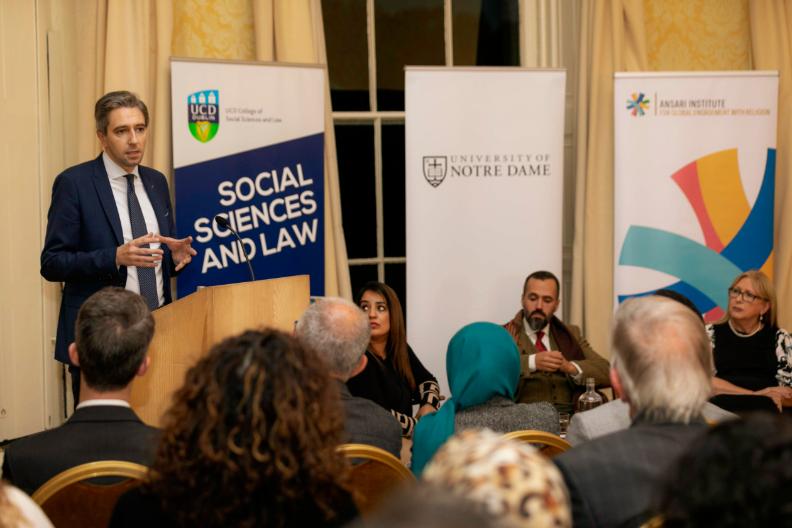
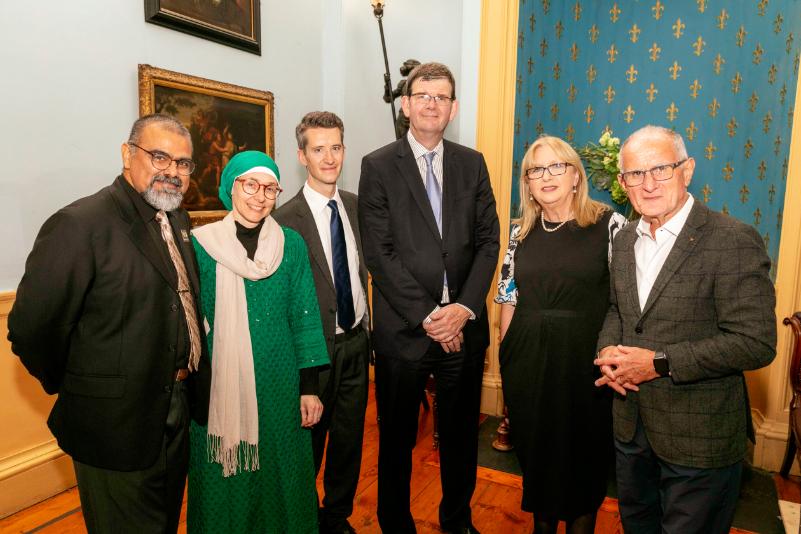
The workshop was held in the Royal Irish Academy and featured three themed panel discussions on Islam in Ireland; Politics and Governance; and the International View. Speakers included representatives from Irish Muslim communities as well as Dr. James Carr (University of Limerick), Dr. Roja Fazaeli (TCD), Dr. Dahlia Fahmy (LIU Brooklyn) and Zara Muhammad (Secretary General of the Muslim Council of Britain).
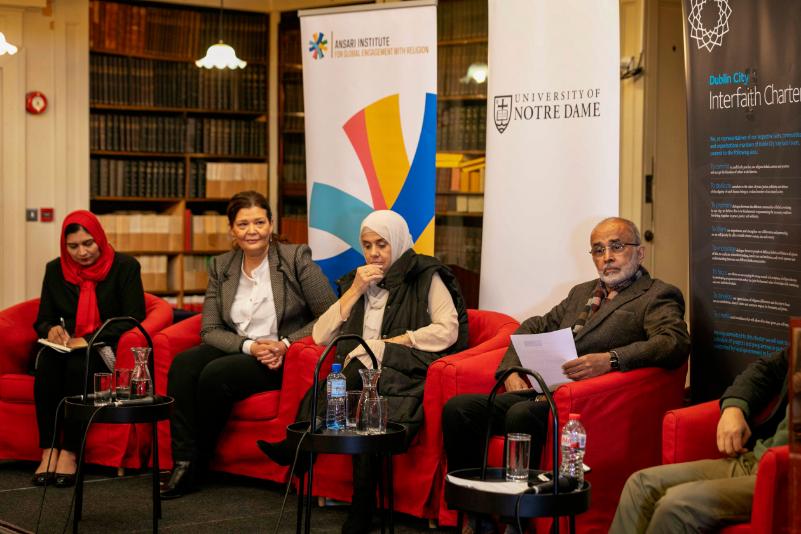
The workshop was co-organised by the Newman Centre for the Study of Religions in collaboration with two research centres based in the University of Notre Dame: the Clingen Centre for the Study of Modern Ireland (in the Keough-Naughton Institute for Irish Studies) and the Ansari Institute for Global Engagement with Religion. The organisers were supported by Dublin City Interfaith Forum; the Islamic Cultural Centre of Ireland; UCD Global; and John Barry and Susan Lysaght of UCD Major Strategic Partnerships.
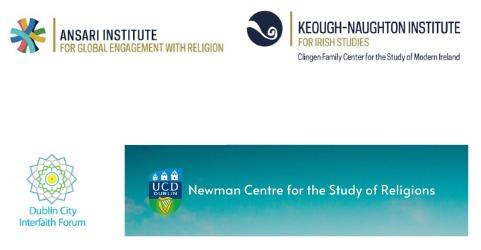
The event received significant media coverage, including from RTÉ (the Irish national broadcaster) and the Irish Times newspaper. For RTÉ coverage, see here. For Irish Times coverage, see here.
2. UCD EDI Faith and Religions Working Group
The UCD EDI Faith and Religion Working Group was established in 2023 as a result of the Islam and Ireland event, with the aim of exploring how University College Dublin (UCD)—Ireland's largest university—can be more inclusive of students and staff of all religions and faiths. The ultimate goal of the group is to ensure UCD is an equitable, safe, and respectful environment for people of all faiths and none.
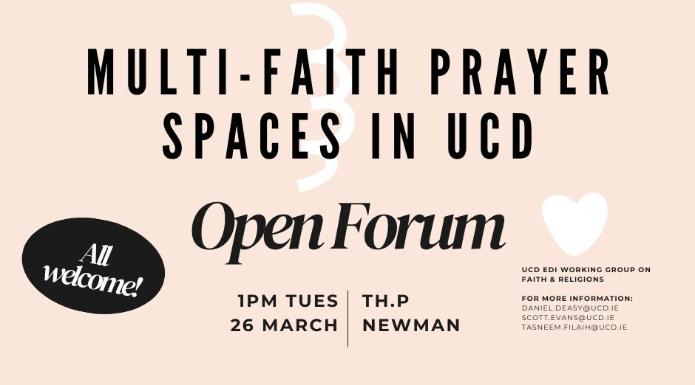
The working group is composed of 24 members from across the university and includes staff and student leaders from Jewish, Muslim, Hindu, and Christian communities. The group's focus is on faith as part of EDI culture and addressing the practical needs of students and staff.
The group's recommendations based on the findings of surveys and focus groups includes expanding, upgrading, and consolidating UCD’s space for multi-faith religious worship, prayer and quiet reflection, as well as diversifying and strengthening the provision of religious pastoral care, is especially important in light of Ireland’s growing Muslim population and growing Muslim student body.
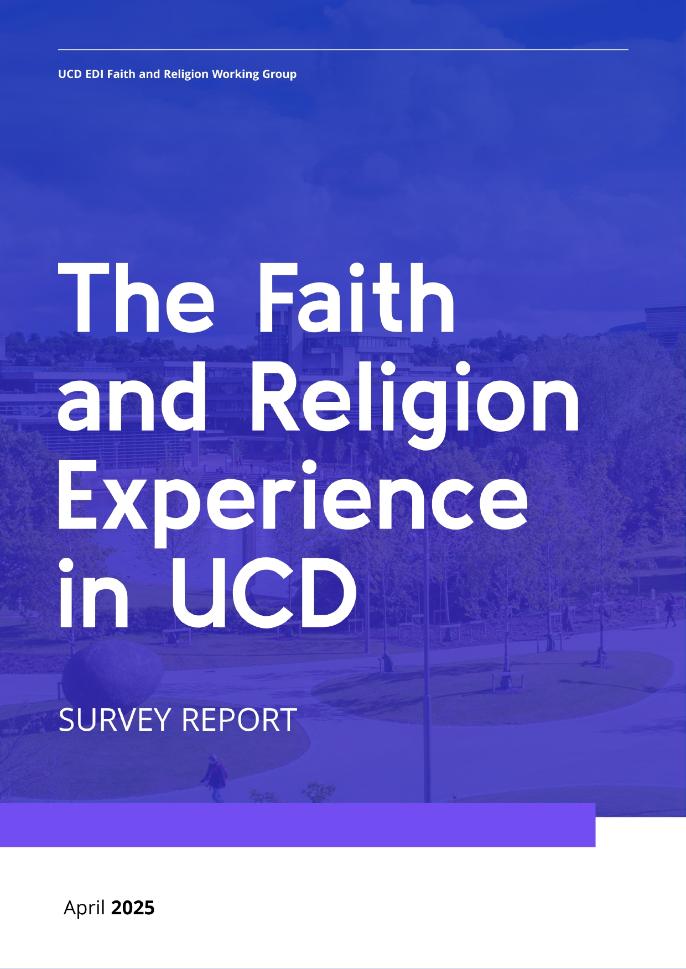
The group also found that UCD could and should do more to recognise and support religious and faith diversity among students and staff, with the aim of fostering religious inclusivity, religious integration, multiculturalism, and global citizenship; and, that this recognition and support should be concretely reflected through the University’s communications, activities, and academic procedures and processes (for example, the formal recognition by the University of a greater range of religious holidays). It was found that such recognition and support for religious diversity would significantly complement, strengthen and intersect with the University’s commitment to inclusivity and equality in terms of e.g. gender, sexuality, race and ethnicity, and disability.
